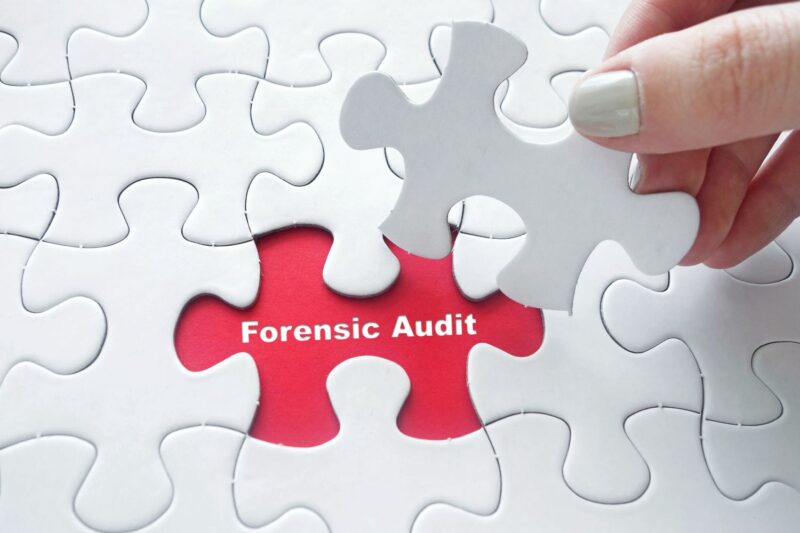Forensic audit and accounting is a specialised field that combines accounting, auditing, and investigative skills to examine financial statements, transactions, and records for fraud, errors, or misconduct. Forensic auditors and accountants are often engaged by organisations, regulators, courts, or law enforcement agencies to assist in fraud prevention, detection, investigation, and litigation support.
The field of forensic audit and accounting is constantly evolving and facing new challenges in the dynamic and complex business environment. Particularly in recent years, with technology and digital accounting becoming the norm, forensic accountants and auditors have seen major changes to the way they work. This article aims to highlight some of the recent developments and issues that affect forensic auditors and accountants in Australia, and how we can respond to them effectively and professionally.
Trends in Forensic Audit and Accounting
Key trends that are currently shaping the forensic audit and accounting profession in Australia are:
- Increased demand for forensic services. The forensic accounting market has showed significant growth over the recent years. In 2023 the global forensic accounting market size was estimated at a value of $5.31 billion (USD) and is projected to reach $5.81 billion in 2024. It is expected to see further growth to $7.95 billion in 2028 at a compound annual growth rate (CAGR) of 8.1%. The expected growth in the forecast period for forensic accounting can be attributed to several factors, including the rise in cybersecurity threats, a stronger focus on preventing fraud, a broader role in managing risks, involvement in intricate financial transactions, and increased regulatory scrutiny across industries. Key trends anticipated in the forecast period include the adoption of machine learning for anomaly detection, a shift towards specialising in specific areas within forensic accounting, greater use of data analytics in investigations, a heightened emphasis on ongoing professional development for forensic accountants, and the incorporation of predictive analytics for more effective risk assessment. These trends collectively contribute to the expected growth and development of forensic accounting practices in the forecasted period.
- Increased use of technology and data analytics. Some of the most obvious changes in our field can be seen in the technology available to us as forensic experts. Technology such as AI and data analytics tools have become essential, as it enables us to collect, analyse, and present large and complex data sets, identify anomalies and patterns, and enhance the efficiency and effectiveness of our work. It is vital that we keep abreast of the latest developments and innovations in technology and data analytics, such as artificial intelligence, machine learning, blockchain, cloud computing, and digital forensics, and leverage them to enhance our skills and capabilities. Modern technology provides opportunity for efficiency, though we also need to be aware of the potential risks and challenges posed by these rapid technological developments, such as data quality, security, privacy, and of course ethical issues.
- Increased emphasis on professional standards and ethics. Forensic auditors and accountants are expected to adhere to the highest standards of professionalism and ethics, as we often deal with sensitive and confidential information, and provide expert opinions and testimony in legal proceedings. Forensic experts therefore need to comply with the relevant laws, regulations, and professional standards that govern our practice, such as the Accounting Professional and Ethical Standards Board (APESB) standards, the Australian Auditing Standards, and the Code of Ethics for Professional Accountants. The increased regulation and standards in our field offer improved clarity and operating procedures, ensuring forensic practitioners deliver the best possible work, devoid of conflict of interest, bias, or undue influence.
Challenges in Forensic Audit and Accounting
As the modus operandi of fraudsters and the means available to them changes, forensic auditors and accountants have to keep up and be one step ahead to ensure a successful outcome. Current challenges include:
- Complex and evolving fraud schemes. Fraudsters are becoming more sophisticated and creative in devising and executing fraud schemes. They use various methods and channels, such as identity theft, phishing, money laundering, bribery, and cyberattacks. Deep fake and phishing scams are becoming almost undetectable to the end-user, placing a greater onus on technology to detect these scams before they hit in-boxes. As a result, forensic professionals need to be even more vigilant and proactive in detecting and investigating fraud and will use a combination of traditional and new techniques, such as interviews, document analysis, forensic accounting, digital forensics, and data analytics. We also need to be aware of the emerging fraud risks and trends, such as those related to the COVID-19 pandemic and update our knowledge and skills accordingly. Equally, we have a responsibility to train stakeholders on potential risks and mitigation.
- Legal and regulatory uncertainty. The Australian regulatory landscape is complex due to its connections with international markets. We operate in a dynamic legal environment, which may vary across jurisdictions and sectors. We further need to be prepared for the potential changes and reforms in the legal and regulatory landscape, such as the proposed amendments to the whistleblower protection regime. We are also expecting the introduction of the corporate criminal responsibility regime, and the review of the audit quality framework, which will all have an impact on our daily operations.
- Competitive and diverse market. Our markets and clients are becoming more interconnected and diverse by the day with supply chains and stakeholder network becoming more complex. In part, the technology which is making our lives as forensic accountants and auditors easier such as AI and digital platforms, is also causing some of this complexity. Our differentiating factor or USP as professionals will come from our ability to work effectively within these new business landscapes and leverage new technologies, as much as our traditional ability to collaborate with industry peers such as lawyers, investigators, regulators, and experts.
What happens when I need a forensic accountant?
No organisation looks forward to needing a forensic accountant or auditor. In fact, we are usually the least favourite service to use. When it is time to call a forensic expert, ensure that you find an expert who can demonstrate expertise, innovation, and technical skills to identify the problem, as much as the ability to working with your organisation to stop any future instances of fraud.
Moore Australia’s forensic accounting and audit experts collectively have decades of experience and are dedicated to continuous learning and professional development.
Should you wish to discuss our forensic audit and accounting services please contact Moore Australia advisor today.



















